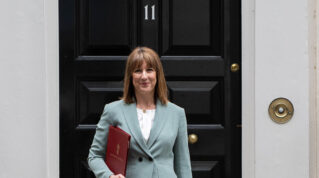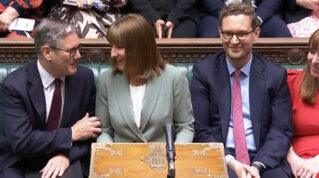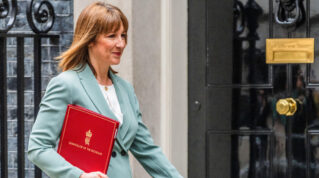Academy trusts with large levels of reserves will not be told by government they have to spend the cash, nor face having it clawed back, new government guidance sets out.
However, officials warned those sitting on reserves worth a fifth or more of their income will be asked to show they have “sufficient plans” in place for the cash to “meet pupils’ needs”.
New government advice also suggested trusts with spare reserves could look to invest the cash to bring in extra income.
The Department for Education has published a “good practice guide” on academy trust reserves today.
It comes after the National Audit Office ordered officials to investigative trusts building up “substantial reserves”.
The government’s spending watchdog found 22 per cent of trusts had reserves amounting to one-fifth or more of their annual income in 2019-20.
But trusts said reserves had built up because of Covid-delayed building projects or to help them stay afloat as costs soared.
‘Need to strike right balance’
The new guidance stated the Education and Skills Funding Agency (EFSA) “does not set a required level of reserves” – this is up to trustees to decide.
Reserves can be held for future strategic growth and planned investment, alongside cashflow and contingency, the guidance stated.
But trusts need to “strike the right balance between holding sufficient reserves to ensure the financial health of their schools and the ability to fund significant future investment, without holding back too much that could otherwise be used to benefit pupils.”
For those “choosing to hold high levels of reserves [20 per cent or more of income], trustees should have a plan and be clear on the purpose for these funds, and how they will improve the education for pupils”.
There is no “set limit to the level of reserves a trust can build, provided the trust has clear plans” for it.
But it would be “unusual and potentially hard for a trust to justify the decision to hold significant reserves at this level for general contingency, given this funding could be used sooner for the benefit of pupils”.
Reasons for holding large reserves are usually when a trust is looking to fund upcoming capital projects, planning to grow or to cover academy transfers, the guidance added.
‘Consider investing spare reserves to generate extra income’
Trusts are now asked as part of their July budget forecast return how they would use large reserves, alongside planned project costs and timings.
The guidance added: “ESFA will not require trusts to spend reserves, nor will the agency look to take back reserves just because reserves are at a high level, but it will ask trusts to make sure that they are compliant with the ATH [academy trust handbook] and have sufficient plans in place for these funds to meet pupils’ needs.”
The handbook stated trust boards must set a policy for holding reserves and explain this in its annual report. Trusts found in breach of academy rules can face government intervention.
When setting their reserves policy, trusts boards are also advised to consider how any spare reserves could be “invested to generate some extra income for the trust”.
A Schools Week investigation in 2021 revealed how rich academy trusts were getting richer by investing spare cash. Some were making six-figure sums through stocks, wealth managers and other investment strategies.
Reserve level to form part of commissioning decisions
Where trusts have “low, or persistently declining levels of reserves heading towards a forecast of low reserves”, the ESFA will contact the trust to “understand its position and discuss any potential support that may be appropriate”.
The threshold has been for reserves of 5 per cent of total income or less. Around 90% of trusts hold reserves of at least this level.
The ESFA pledged to “engage” with such trusts to “understand their circumstances”.
The level of reserves will also be part of ESFA’s advice to regional directors making commissioning decisions relating to schools joining the trust.
The DfE said previously it was “strengthening” trust data requirements to help “challenge the robustness of their financial reserves’ plans”.
Labour’s Baroness Wilcox had claimed “these institutions cannot be cash cows”, but trusts strongly refuted her comment.
Schools Week analysis found many trusts with large reserves were single-academy trusts. Thirteen of the 20 trusts with the highest-ratio reserves in 2021 run special schools or alternative provision.
A report from accountancy firm Kreston earlier this year also found only 11 per cent of the trusts they worked now had reserves over 20 per cent of income.
This was also amid a “hugely uncertain” funding future, including on teacher pay and falling pupil numbers.
A survey by the Confederation of School Trusts in October also found just 46 per cent of CEOs were very or quite confident about the financial sustainability of their trust, down from 77 per cent in the year before.
















Your thoughts